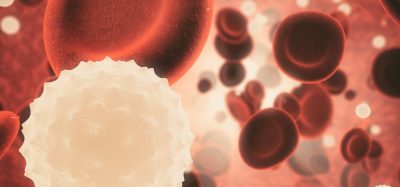Preclinical study highlights an effective combination immunotherapy for liver cancer
Posted: 20 May 2022 | Ria Kakkad (Drug Target Review) | No comments yet
Study in mice significantly slowed liver tumour growth and activated anti-tumour immune response, highlighting an effective immunotherapy for liver cancer.


Researchers from the University of Missouri School of Medicine, US have discovered a specific combination immunotherapy that shows promise in the fight against liver cancer. The therapy involves a tumour-suppressing lipid molecule called nanoliposome C6-ceramide (LipC6) and an antibody for cytotoxic T-lymphocyte antigen 4 (CTLA4). When used together in this study, LipC6 and the anti- CTLA4 antibody significantly slowed tumour growth and enhanced the strength of tumour-attacking T cells. The study was recently published in Federation of American Societies to Experimental Biology.
“Our analysis revealed the combination therapy significantly extended the life span of tumour-bearing mice compared to the mice with a single type of therapy or no therapy at all,” said lead scientist, Dr Guangfu Li.
The researchers state that this finding is especially promising given the current lack of effective therapies against liver cancer.
“What is particularly notable is that we have now demonstrated that LipC6 treatment significantly improves the ability of anti-CTLA-4 antibodies to suppress liver cancer,” Li said. “LipC6 and anti-CTLA-4 antibody have been approved by the US Food and Drug Administration (FDA) to use in human patients, so this combination treatment can be quickly translated to clinical application.”
More research will be required to better understand the underlying mechanisms behind the success of this combination.
“The human therapeutic response to another commonly used type of immunotherapy, anti-PD-1, is only about 14 percent in liver cancer patients,” said co-principal investigator Dr Kevin F. Staveley-O’Carroll. “We also tested anti-PD-1 immunotherapy in combination with LipC6, but it showed no benefit compared to the robust response demonstrated by the combination of LipC6 and anti-CTLA4 antibodies. This represents a new and powerful therapeutic approach.”
Related topics
Disease Research, Immuno-oncology, Immunology, Immunotherapy, Research & Development, Therapeutics
Related conditions
Liver cancer
Related organisations
University of Missouri School of Medicine, US Food and Drug Administration (FDA)
Related people
Dr Guangfu Li, Dr Kevin F. Staveley-O’Carroll








